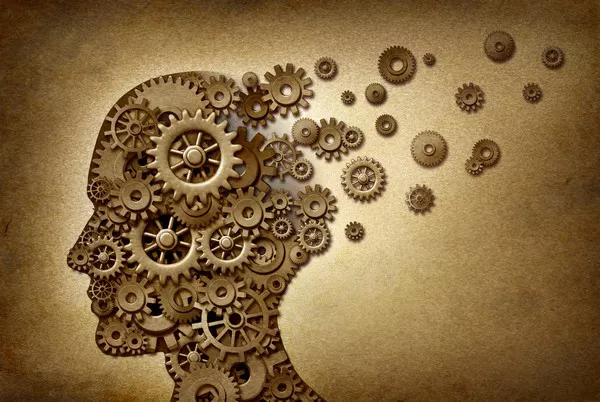Mental illness, a pervasive health concern worldwide, affects millions of individuals across diverse age groups and backgrounds. While its long-term consequences are well-documented, exploring the short-term effects of mental illness is equally crucial. In this comprehensive article, we delve into the immediate and often overlooked impact that mental health disorders can have on individuals’ lives.
Understanding Mental Illness: A Primer
Mental illness encompasses a broad spectrum of conditions that affect an individual’s emotional, psychological, and cognitive well-being. These conditions can range from anxiety and depression to more severe disorders like schizophrenia and bipolar disorder. Regardless of the specific diagnosis, mental illnesses can manifest with a variety of symptoms, each of which can have short-term consequences.
Short-Term Effects of Mental Illness
1. Emotional Turmoil
One of the most immediate and recognizable short-term effects of mental illness is emotional turmoil. Individuals grappling with mental health challenges often experience intense and fluctuating emotions. For example, individuals with depression may feel overwhelming sadness, hopelessness, and a profound lack of interest or pleasure in activities they once enjoyed. Those with anxiety disorders may grapple with intense fear, restlessness, and a pervasive sense of unease.
These emotional responses can be debilitating, affecting an individual’s ability to function in daily life. The emotional turbulence can lead to strained relationships, decreased work or academic performance, and social withdrawal.
2. Impaired Cognitive Functioning
Mental health disorders can significantly impact cognitive functioning, leading to short-term cognitive deficits. For example, individuals with anxiety disorders may find it challenging to concentrate or make decisions due to persistent worry and rumination. Similarly, individuals with attention-deficit/hyperactivity disorder (ADHD) may experience difficulties with focus, attention, and impulse control.
Cognitive impairments resulting from mental illness can disrupt academic and occupational responsibilities, hindering an individual’s short-term goals and productivity.
3. Physical Symptoms
Mental health and physical health are interconnected, and mental illness can manifest in various physical symptoms. Short-term physical effects of mental illness can include headaches, muscle tension, gastrointestinal disturbances, and sleep disturbances. For instance, individuals with generalized anxiety disorder may experience frequent headaches and gastrointestinal discomfort due to chronic worry and tension.
Moreover, the body’s stress response, triggered by mental health challenges, can lead to the release of stress hormones like cortisol, which, when elevated over time, can contribute to physical health issues such as hypertension and cardiovascular problems.
4. Social Isolation
A pervasive short-term effect of mental illness is social isolation. Individuals grappling with mental health disorders often withdraw from social interactions due to feelings of shame, embarrassment, or the overwhelming emotional burden they carry. This isolation can exacerbate their condition, leading to a vicious cycle of deteriorating mental health and increased social withdrawal.
Maintaining a support system is crucial for mental well-being, and social isolation can hinder an individual’s ability to seek help and support during challenging times.
5. Disrupted Sleep Patterns
Sleep disturbances are common among individuals with mental health disorders, leading to disrupted sleep patterns. Conditions like depression and anxiety can result in insomnia or hypersomnia (excessive sleep), both of which can exacerbate emotional distress and cognitive impairments.
Lack of restorative sleep further contributes to the short-term effects of mental illness, creating a cascade of physical and emotional challenges.
6. Impaired Daily Functioning
The short-term effects of mental illness often manifest in impaired daily functioning. Simple tasks such as getting out of bed, showering, preparing meals, and attending work or school can become arduous challenges for individuals grappling with mental health conditions.
The inability to perform routine activities can lead to feelings of frustration, self-criticism, and a sense of inadequacy, further exacerbating the emotional toll of mental illness.
7. Increased Risk of Self-Harm and Suicidal Ideation
Perhaps one of the most critical short-term effects of severe mental illness is the increased risk of self-harm and suicidal ideation. Individuals experiencing overwhelming emotional distress and despair may contemplate self-harm or suicide as a means of escape from their suffering.
It is crucial to recognize the signs of suicidal ideation and self-harm and to seek immediate professional help or support from loved ones when these signs arise. Prompt intervention can be lifesaving.
Seeking Help and Support
While mental illness can bring about significant short-term effects, it is essential to understand that help and support are available. Mental health professionals, including psychiatrists, psychologists, therapists, and counselors, specialize in diagnosing and treating mental health conditions.
Treatment modalities for mental illness often include psychotherapy, medication, lifestyle modifications, and support from loved ones. Early intervention is key to managing short-term effects and preventing the escalation of mental health challenges into long-term, chronic conditions.
In Conclusion: Navigating the Immediate Impact
The short-term effects of mental illness can be profound, affecting emotional, cognitive, physical, and social aspects of an individual’s life. Recognizing these effects and seeking timely support and treatment is essential for mitigating their impact and preventing further deterioration of mental well-being.
As society continues to prioritize mental health awareness and reduce the stigma surrounding mental illness, individuals are encouraged to reach out for help when needed and to provide support to those facing mental health challenges. By understanding and addressing the short-term effects of mental illness, we can collectively work towards improved mental well-being and a brighter future for all.


